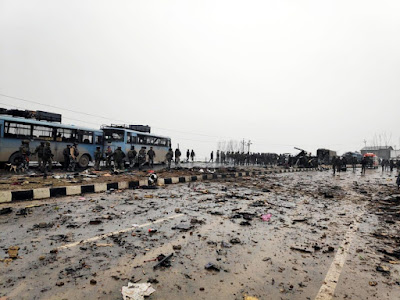Pongal or Sankranti
is celebrated a harvest festival, when the month Margazhi or Dhanura comes to
an end. The month that starts with the festival is Thai or Markara. It also
marks the beginning of Uttarayana, a six-month period during which the sun
moves north. On festival day the sun starts traveling TICs to the north and
Uttarayana, a propitious period where all the essential functions are held
starting.
The festival is
celebrated with the same name; to mark the end of winter and celebrate the
beginning of spring. In most parts of northern India, it is celebrated as Lohri
and Assam as Bhogali Bihu.
In South India, they are celebrating as Pongal in Tamil Nadu, Sankranthi Or Yellu Bella in Karnataka,
Sankranti in Andhra Pradesh, Makara Sankranti in Maharashtra and Makaravillaku
in Kerala. The last day of Pongal is Kaanum Pongal. It is served with sugar
cane, bananas and betel nut on the day of the day. Families spend the day
outdoors, visiting or in public places.
Tamil Nadu:
Pongal is a four-days-long harvest festival celebrated in Tamil Nadu, a southern state of India. For as long as people have been planting and gathering food, there has been some form of harvest festival. Pongal, one of the most important popular Hindu festivals of the year. This four-day festival of thanksgiving to nature takes its name from the Tamil word meaning "to boil" and is held in the month of Thai (January-February) during the season when rice and other cereals, sugar-cane, and turmeric (an essential ingredient in Tamil cooking) are harvested. Kolam with rice
paste is a common sight everyday of the festival. The designs are eye-catching
with their intricate pattern and thoughtful size.
First they cook rice
(Pongal) in pots near the anthill. Simultaneously we make preparation for the
pooja.
At least one set of
new clothes (never worn before ) is also kept during this pooja. Once the
pongal(cooking rice in the pot) start boiling and overflowing one guy will
loudly say(some guys shout) PongaloOOOO Pongal three times.
Later the hen/goat
brought already is be sacrificed in front of the anthill and the first blood is
thrown all over it.
Rest of the pooja is performed in the usual manner which you will find in every Hindu pooja. The freshly prepared rice with the addition of sugar/jaggery is used as prasadham and later distributed to the people present there.
Rest of the pooja is performed in the usual manner which you will find in every Hindu pooja. The freshly prepared rice with the addition of sugar/jaggery is used as prasadham and later distributed to the people present there.
Kerala :
Pongal is the most
important festival of Kerala. Encompassing different aspects of life such as
harvest, cleanliness, feast, plants, animals and relationship bonds, Pongal is
the time to make merry. Pongal
seems to be a series of celebrations all rolled into one festival. The Pongal
series consists of Bhogi Pongal, Thai Pongal, Mattu Ponal and Kanum Pongal. Each Pongal is unique in its
concept and has its own rituals and celebrations. During the festival the
people clean their houses, wear new clothes and make colourful rangoli at the
main entrance of their houses. This festival falls in the month of January and
stretches for four days.
Sankranthi, Andhra Pradesh and Telangana:
As in Tamil Nadu, Andhra Pradesh and Telangana Sankranthi
celebrate a four-day period. On Bhogi, the first day, a campfire is the bed to
burn old and unwanted things before the traditional bath. The next day is
Sankranthi, when pongali, a rice pudding and sweet dishes like ariselu, which
are rice cakes, are prepared. The third day is Kanuma, where animals are
decorated and events like them, bullfights and forbidden cockfights are also
sometimes included. The fourth day is Mukkanuma. The festivals offer prayers to
the Sun of God, Mahabali and Godadevi. Another highlight is the gift and the
gift of the pumpkin.
Karnataka’s Pongal :
On the occasion of Pongal in
Karnataka, prayers are offered not only at home but also in the temples. This
traditional custom continues to this day.
A special dish is prepared on
the occasion of Pongal in Karnataka. The ingredients of this sweet dish Ellu
are coconut, sesame seeds and sugar. It is customary for the people to exchange
this sweet dish with friends, relatives and neighbors. It is a token to show
that hence forth the relationship will be as sweet as Ellu with no bitterness
involved.
People clad themselves in new
clothes. But they are not the only ones to dress up gorgeously; they decorate
their cows and bullocks as well. Humans and animals are equally a part of this
unrestrained merry making. Pongal, a sweet preparation made of rice is served
to the animals.


No comments:
Post a Comment